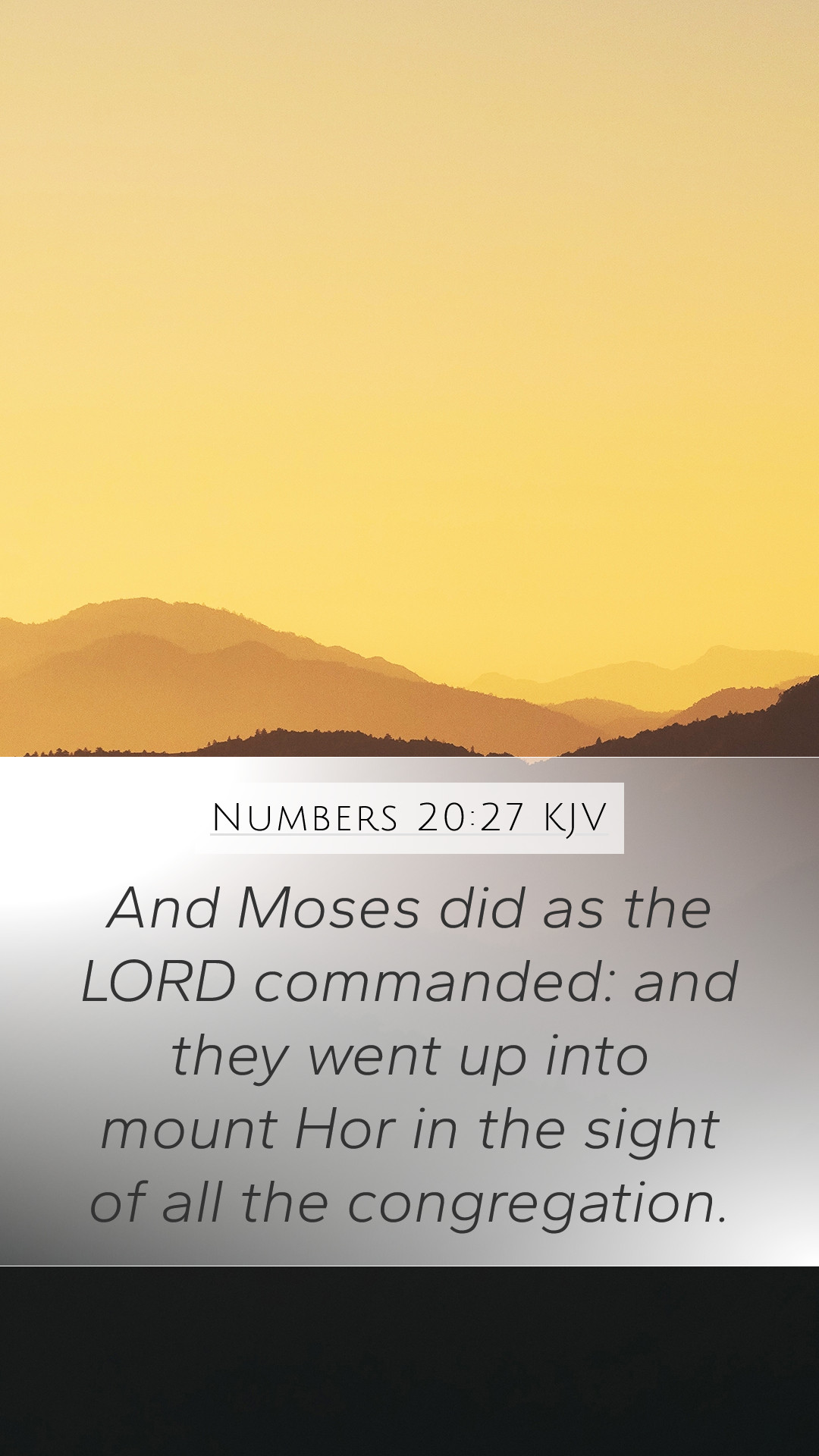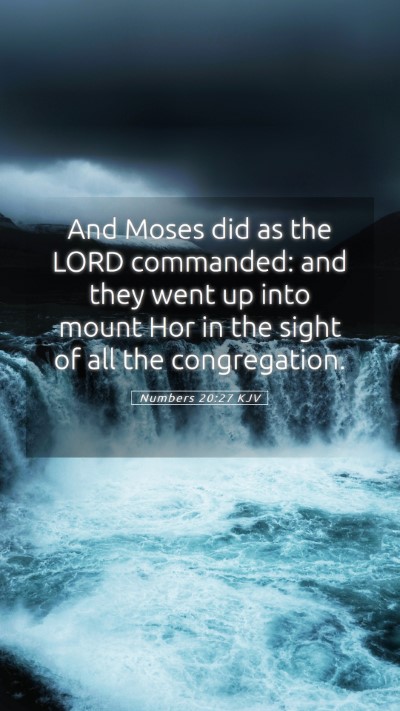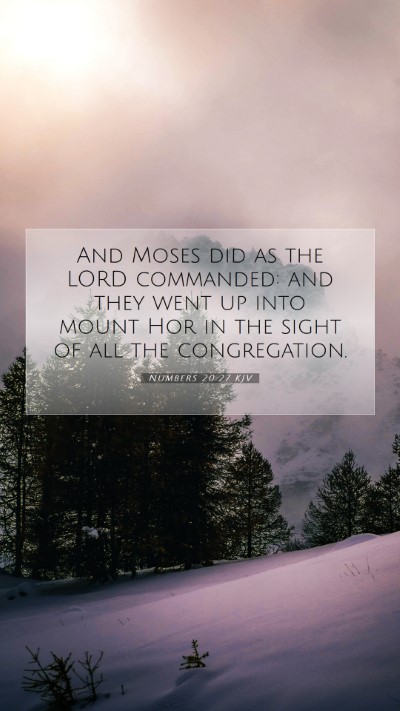Understanding Numbers 20:27
Bible Verse: Numbers 20:27
Verse Reference: [BibleVerseID: 04020027]
Overview
Numbers 20:27 recounts a significant moment in the journey of the Israelites as they wander in the wilderness. This verse describes the actions taken by Moses in relation to his brother, Aaron's death, and the subsequent events surrounding the consecration of Eleazar as the new high priest.
Bible Verse Commentary
This passage can be interpreted from various theological perspectives, incorporating insights from Matthew Henry, Albert Barnes, and Adam Clarke.
Matthew Henry's Commentary
According to Matthew Henry, this verse captures a solemn occasion—the death of Aaron. Henry emphasizes the importance of leadership transitions within the community of Israel. Moses, as the leader, not only mourns Aaron but also takes immediate action to ensure the spiritual continuity of the nation by appointing Eleazar. This act is crucial as it highlights the need for godly leadership and the importance of preparing a successor. Henry suggests that this reflects God's order and providence even in times of grief.
Albert Barnes' Notes
Albert Barnes offers an analytical perspective on the ceremony surrounding Aaron’s death. He points out that Moses’ actions followed divine instruction, affirming the belief that God orchestrates events for a purpose. Barnes notes the necessity of maintaining priestly duties and suggests that the installment of Eleazar was essential for the spiritual well-being of the Israelites. Furthermore, he reflects on how leadership roles were divinely mandated and carried significant implications for the entire community’s welfare.
Adam Clarke's Commentary
Adam Clarke expands on the cultural implications of Aaron’s death, suggesting that it served as a stark reminder of human frailty even among the chosen leaders of God’s people. Clarke discusses the implications of Aaron's death in the context of Israel’s journey—viewing it as both a loss and a necessary transition. He emphasizes the continuity of God’s covenant through the high priesthood and the crucial role Eleazar would play going forward. Clarke notes the sacredness of the priestly role and how it connects with prayer, worship, and guidance for the people.
Biblical Exegesis and Application
Understanding Numbers 20:27 requires examining its context within the larger narrative of the Book of Numbers. This passage, located toward the end of the Israelites' wandering years, signifies a pivotal moment of transition that mirrors the realities of leadership, loss, and continuity in God's plan.
Key Themes
- Leadership and Succession: The importance of establishing a spiritual authority within the community.
- Grief and Mourning: The personal loss experienced by Moses as a reflection of the collective grief of the Israelites.
- Divine Providence: Recognizing God's hand in leadership transitions and the continuity of priestly service.
- Covenant Relationship: The ongoing commitment between God and His people despite human failings.
Cross References
- Exodus 28:1: Explains God's command for the ordination of priests, including Aaron's role.
- Leviticus 10:6-7: Discusses the implications of priestly conduct and responsibilities.
- Numbers 3:3: Details the lineage and duties assigned to Aaron's descendants.
- Deuteronomy 10:6-7: Mentions Aaron's burial as part of Israel's history.
- Hebrews 5:4: Reflects on the priestly order and its significance in the New Testament.
Conclusion
Numbers 20:27 serves as an important reflection on leadership within Scripture, highlighting how God provides for His people in times of transition and loss. The meanings extracted from this verse emphasize key themes of continuity, divine purpose, and the essential nature of serving as God's representatives. Such insights are vital for those engaging in Bible study and seeking to understand Scripture more deeply.
Bible Study Insights
In-depth study of this passage encourages believers to reflect on their own roles in spiritual leadership and the importance of preparing others for service. Bible study groups and online Bible study resources can facilitate deeper discussions about the nuances of this transition in leadership that bears significance across generations.


